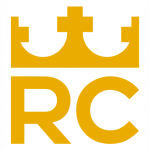15 Sep Science, Climate Change and Theology: A Dialogue
Published in Regis Friends Quarterly, September 2024 edition (3.1).
Science is big and it does big stuff. It built the nuclear bomb, mapped the human genome and sends ships into space. It got us out of COVID. It tells us where we came from and what we’re made of (oxygen, hydrogen, nitrogen, etc. – about a dollar’s worth of chemicals).
Theology is big and it does big stuff. It builds cathedrals, temples, synagogues and mosques all around the world. It calls us to our better selves and releases our inner demons. It tells us where we came from and what we’re made of (an eternal spirit beyond our understanding).
So do science and theology have anything to say to each other? The American Association for the Advancement of Science, the world’s largest scientific association with over 120,000 members, thinks so. They’re putting up the money for a serious, wide-ranging conversation between scientists and theologians at Regis College.
The dialogue comes to Regis this October through April in the form of a Windows on Theology continuing education course called Science, Climate Change and Theology: A Dialogue.
The science money for this series of academic exchanges on climate change comes from an AAAS fund called DoSER, or Dialogue on Science, Ethics and Religion. Program director Dr. Katy Hinman told Regis Friends Quarterly this dialogue is not just interesting, it’s urgent and necessary.
“The scientific community needs to hear these voices,” said the Methodist pastor with a PhD in ecology and evolution.
Hinman will be among the scientists checking in on the Regis College program of conversations about the science and theology of climate change, forest fires and loneliness this fall.
“We’re an interdisciplinary scientific association,” Hinmen said. “We go across borders and across boundaries. That ethic is something we take into all that we do.”
It’s well past time everybody got over the religion-hates-science meme that has ruled Western culture since the Enlightenment, Jesuit Scholastic Alex DeWitt told Regis Friends Quarterly.
“As a high school world history teacher in Chicago during my regency, I used to enjoy when a student would ask the Galileo question, because the history behind that story is far more complex than the religion-hates-science narrative popularized by Enlightenment polemicists,” Dewitt wrote in an email.
Historical facts run counter to the popular narrative. Maximilian Hell, an Hungarian Jesuit, was one of the first scientists to observe and record the transit of Venus in 1769. French Jesuit Pierre Teilhard de Chardin – geologist, palaeontologist, philosopher and theologian – confirmed many of Darwin’s theories in the early 20th century. Belgian priest George Lemaitre was one of the first theoretical physicists and astronomers to propose the Big Bang theory.
“Scientific inquiry is part and parcel of the church’s engagement with the created world,” said DeWitt, a Regis graduate student working on the Science, Climate Change and Theology dialogue. “A theological dialogue with the ecological sciences on the issue of climate change is only the most recent instantiation of this kind of inquiry.”
It’s also a dialogue encouraged by the scientifically minded Pope Francis. “A broad, responsible scientific and social debate needs to take place, one capable of considering all the available information and of calling things by their name,” Pope Francis wrote in the 2015 encyclical letter Laudato Sí.
Jesuit Gerard Ryan, Regis College’s Director of Basic Degree Programs and Professor of Political Theology, got the science and theology ball rolling last year with an initial series of conversations between University of Toronto scientists and Regis St. Michael’s Faculty of Theology. Extending this into the wider community with a Windows on Theology course is the next logical step, Ryan said in a WhatsApp interview from an AAAS grant meeting in Maryland.
“We’re modelling a way of engagement with different discourses, different disciplines, with different positions, with different cultural considerations,” Ryan said. “We’re modelling a way of proceeding that, if it were normative within our public arena in the sense of our political arena, we would have a lot less mud-slinging, a lot less divisions, a lot less factions.”
Scientists and theologians having a serious, open, public conversation about climate change, forest fires and the social isolation of so many citizens is the opposite of the social media noise that often dominates and blocks attempts to understand the world, Ryan said.
“I don’t think we’re creating solutions,” he said. “But in the first instance we are creating a platform of connectivity – connectivity between scientists and theologians, and connectivity between scientists and the audience.”
The Windows on Theology course is not all that will come out of Ryan’s grant from the AAAS. Ryan is using the grant to fund research on a new book on the science of loneliness and ecological accompaniment, due out in 2025. It builds on Ryan’s previous book, Mutual Accompaniment as Faith-filled Living: Recognition of the Vulnerable Other.
Sharing this process with the sort of motivated Catholics who sign up for Windows in Theology classes is the opposite of the sort of ivory tower, siloed and often inaccessible academic process that dominates the modern academy, Ryan said.
“By engaging with experts and practitioners in climate change, science and theology, you will gain valuable insights to foster deep thinking, reflection, adaptability and resilience throughout your life journey,” Ryan wrote.


